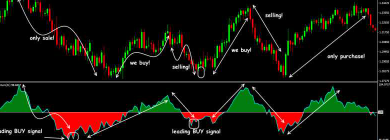Synopsis
Political discourse and public sentiment shape the regulation and adoption of digital assets (VDAs). In India, VDA was recognized in 2023 under anti-money laundering laws. In the U.S., political figures like Kamala Harris and Donald Trump align with VDA proponents, influencing regulation.
As society witnesses the rapid rise of digital assets, the influence of political discourse and public sentiment plays an important role in its adoption and regulation. The public sentiment molds the election, and accordingly, the manifesto is made. As the election is approaching in the US, both major political parties represented by Kamala Harris and Donald Trump position themselves as allies of VDA proponents, and the implications for regulation and public perception become significant.
VDA regulations in India
VDA encompasses various kinds of digital assets. In India, VDA was formally recognised in March 2023, after the Ministry of Finance brought VDA under the Prevention of Money Laundering Act (PMLA). It mandates that all the VDA service providers operating in India should register with the Financial Intelligence Unit-India (FIU-IND) to combat money laundering and terrorist financing.
In contrast, the regulatory framework in the US is very different. However, there is no comprehensive federal regulation specific to VDA, but various agencies like the Securities and Exchange Commission (SEC) and the Commodity Futures Trading Commission (CFTC) have issued guidelines that treat VDA as either securities or commodities based on their usage and characteristics.
Crypto Tracker![]() TOP COIN SETSCrypto Blue Chip – 5-5.33% BuyBTC 50 :: ETH 50-5.47% BuyWeb3 Tracker-8.40% BuyAI Tracker-12.46% BuyNFT & Metaverse Tracker-13.59% BuyTOP COINS (₹) Solana13,624 (0.54%)BuyBNB47,064 (0.49%)BuyBitcoin5,782,302 (0.23%)BuyTether84 (-0.04%)BuyEthereum204,898 (-0.64%)BuyPolitical Discourse and Its Influence
TOP COIN SETSCrypto Blue Chip – 5-5.33% BuyBTC 50 :: ETH 50-5.47% BuyWeb3 Tracker-8.40% BuyAI Tracker-12.46% BuyNFT & Metaverse Tracker-13.59% BuyTOP COINS (₹) Solana13,624 (0.54%)BuyBNB47,064 (0.49%)BuyBitcoin5,782,302 (0.23%)BuyTether84 (-0.04%)BuyEthereum204,898 (-0.64%)BuyPolitical Discourse and Its Influence
Political discourse significantly influences how regulations are formulated and implemented. In India, the growing popularity of VDA has sparked debates about financial innovation versus consumer protection. Political discourse often leads to legislative action that directly affects VDA regulations. For instance, as public interest in VDA surged, political leaders began advocating for comprehensive regulations to safeguard investors while promoting innovation.
Did you Know?
The world of cryptocurrencies is very dynamic. Prices can go up or down in a matter of seconds. Thus, having reliable answers to such questions is crucial for investors.
View Details »In the U.S., both Kamala Harris and Donald Trump have sought to attract voters by aligning themselves with pro-VDA sentiments. Harris has placed a strong emphasis on innovation and consumer protection, arguing for sensible regulation that promotes technological advancement while protecting users. Her stance appeals to younger voters who are more inclined toward digital finance.![]()
On the other hand, Trump has positioned himself as an advocate of free-market principles and frequently criticizes excessive regulations that might hinder innovation in the VDA industry. His views resonate with libertarian-leaning voters who prioritize minimal government intervention in financial markets. As they compete for the support of voters, both parties can use this political alignment to construct a narrative that supports technological advancement.
The Digital Chamber survey conducted among 16% of voters, or 26 million people at least, can be referred to as the new term ‘Crypto Voting Bloc.’ This group of Republicans and Democrats responded that they were somewhat or significantly more likely to vote for a candidate who supports pro-VDA policies. The data indicates that interest in VDA is rising quickly on both sides. Thus, a strong stance in favor of the VDA could help the candidates on the ballots.
Future of VDA Regulation
The political discourse surrounding VDAs is likely to influence future regulatory developments significantly. As both parties in the US seek to harness the growing interest in digital assets, they may push for legislation that balances innovation with necessary oversight. This could lead to more standardized regulations across states in the U.S., similar to what is being developed in the EU.
The intersection of political discourse and VDA regulation highlights how electoral strategies can shape financial landscapes. As leaders like Kamala Harris and Donald Trump explore this complex landscape, their positions on VDAs will not only influence voter sentiment but also set the stage for future regulatory frameworks that could define how these assets are treated globally.
(The author Dilip Chenoy is Chairperson, Bharat Web3 Association. Views are own.)
(Disclaimer: Recommendations, suggestions, views, and opinions given by the experts are their own. These do not represent the views of the Economic Times)

































